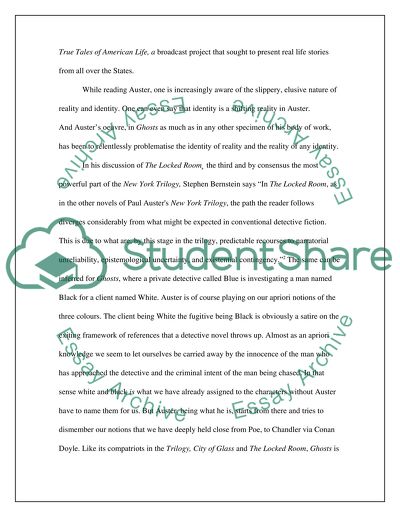Cite this document
(“Literary Austerity In Paul Austers Ghosts Essay”, n.d.)
Literary Austerity In Paul Austers Ghosts Essay. Retrieved from https://studentshare.org/literature/1500132-argumentative-essay-write-about-identity-home-and-work-from-paul-austers-ghosts-you-can-focus-on-one-ore-more-of-these-concepts-as-it-is-depicted-in-the-n
Literary Austerity In Paul Austers Ghosts Essay. Retrieved from https://studentshare.org/literature/1500132-argumentative-essay-write-about-identity-home-and-work-from-paul-austers-ghosts-you-can-focus-on-one-ore-more-of-these-concepts-as-it-is-depicted-in-the-n
(Literary Austerity In Paul Austers Ghosts Essay)
Literary Austerity In Paul Austers Ghosts Essay. https://studentshare.org/literature/1500132-argumentative-essay-write-about-identity-home-and-work-from-paul-austers-ghosts-you-can-focus-on-one-ore-more-of-these-concepts-as-it-is-depicted-in-the-n.
Literary Austerity In Paul Austers Ghosts Essay. https://studentshare.org/literature/1500132-argumentative-essay-write-about-identity-home-and-work-from-paul-austers-ghosts-you-can-focus-on-one-ore-more-of-these-concepts-as-it-is-depicted-in-the-n.
“Literary Austerity In Paul Austers Ghosts Essay”, n.d. https://studentshare.org/literature/1500132-argumentative-essay-write-about-identity-home-and-work-from-paul-austers-ghosts-you-can-focus-on-one-ore-more-of-these-concepts-as-it-is-depicted-in-the-n.


